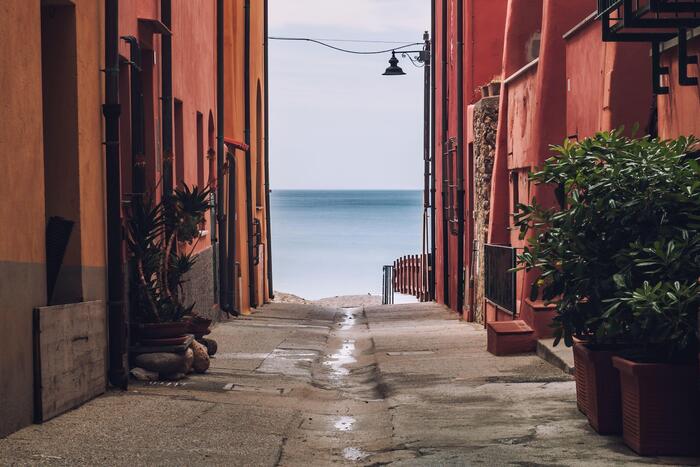The talks are going on in strict secrecy.
But the quintessence seeped through: Several municipal and municipal utilities as well as associations in the district and beyond are exploring opportunities to jointly participate in the Walchensee power plant.
Even the operation of the plant is not excluded.
District / Kochel
- They are silent, and that ironic.
There are no comments, no assessments.
"Message blackout," says a man who has a responsible position in a municipal company in the district.
Then silence follows.
Apparently every syllable can be one too many at the moment.
Participants have imposed a kind of vow of silence.
District Administrator Anton Speer (Free Voters) is considered a man of open words.
At least in very broad outline, it confirms plans that would represent a truly great coup in the field of renewable energies, should the company succeed: Several municipal and municipal utilities as well as associations from the Garmisch-Partenkirchen district and beyond could try to work together on the Walchensee power plant in Kochel am See.
"There have been various conversations," Speer told the daily newspaper.
And emphasizes: "We are in the early stages."
The plant, which went into operation in 1924 as a high-pressure storage power plant, is still today one of the largest of its kind in Germany and the cradle of power generation in Bavaria.
It belongs to and is operated by the international energy company Uniper.
The rights to divert and use water for energy production will expire in 2030 and will be reassigned - a topic of political dimension that is receiving enormous attention.
In the eyes of District Administrator Speer, there is a great opportunity: “You have to have a say here.” He does not rule out that someone else can get involved.
“But that is important for the entire region, you have to be interested in it.” The hydropower could cover peaks in demand.
“It is very important to me,” says Speer.
He belongs to the group of those who gave the impetus for the community of interests.
The district administrator speaks of “several people driving hydropower.
We want to see that the region seeks the opportunity to get something off the ground here ”.
According to Speer, “a joint operation could be possible”.
He repeatedly points out that those involved, whose names he does not publicly name, are at the beginning of a long process and that many questions still remain unanswered.
For example, those according to nature conservation regulations.
As is well known, environmental associations criticize the state of the surrounding waters and demand that ecological aspects be given more weight in the new tender.
The so-called water law permit, as it is called in the correct official German, is ultimately granted by the Bad Tölz-Wolfratshausen district office.
According to press spokeswoman Marlis Peischer, the authority announced to Uniper in the spring that the time limit would expire in 2030.
A new application is therefore necessary.
So far, Uniper has been in control - and wants to keep this status beyond 2030.
"We have already announced our interest in continuing and leading this power plant system into the future," says Theodoros Reumschüssel, the press spokesman for hydropower.
Officially, no competition has yet ventured out of cover.
In the Bad Tölz-Wolfratshausen district office there was “no other application” until Tuesday, explains Peischer.
Reumschüssel confidently assumes that Uniper will operate the power plant beyond 2030.
Therefore, the company does not deal with the question of compensation or a purchase price.
According to him, the concession stipulates that the donor will receive the facility back in good structural condition.
There is no question of compensation, for example for investments.
Reumschüssel does not mention any sums, but makes no secret of the fact that Uniper is in the black with the Walchensee power plant.
He comes out as a "fan" of the system, which uses the natural gradient between Walchensee and Kochelsee to generate clean, practically emission-free electricity.
The water rushes through six 400-meter-long pressure pipelines to the turbines in the nacelle, about 200 meters below.
Around 300 million kilowatt hours are produced in this way every year.
“That's enough for 100,000 households,” says Reumschüssel.
For this, water is taken from the Isar - especially at the weir near Krün - and streams, which is not without consequences.
The plant is operated as a fast-starting peak load power plant.
It provides loyal service when, for example, not enough electricity from solar and wind energy is fed into the grid or when there is increased demand.
Reumschüssel speaks respectfully of an "old lady with a highly topical task", of a "wonderful example of what sustainability represents".
The robust 96-year-old who is geared towards longevity can also score points with her efficiency.
This describes the "harvest factor".
At that point, says Reumschüssel, the system is “in a fantastic position”.
He enthuses: “We love this power plant.” Others have at least one eye on it.
Secretly.
The old lady is (still) bound.








/cloudfront-eu-central-1.images.arcpublishing.com/prisa/CL7NM42NLBG2BDOKOLOEFR4OCY.JPG)





